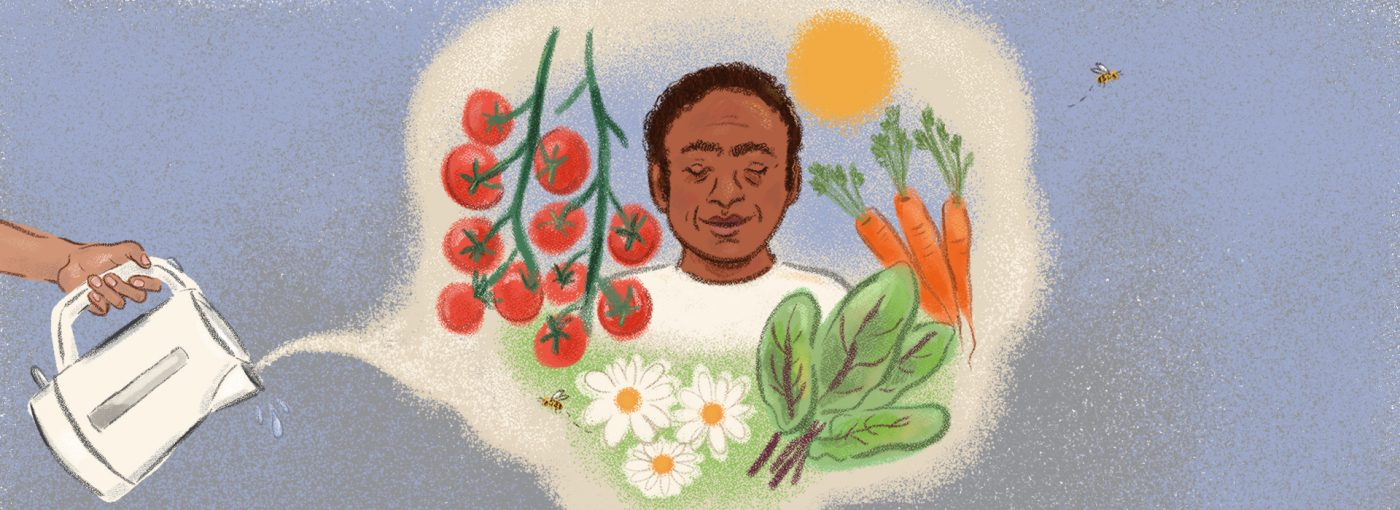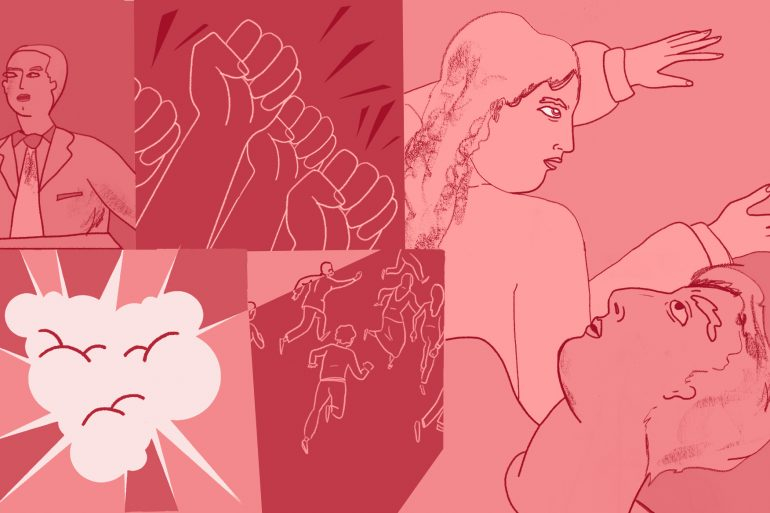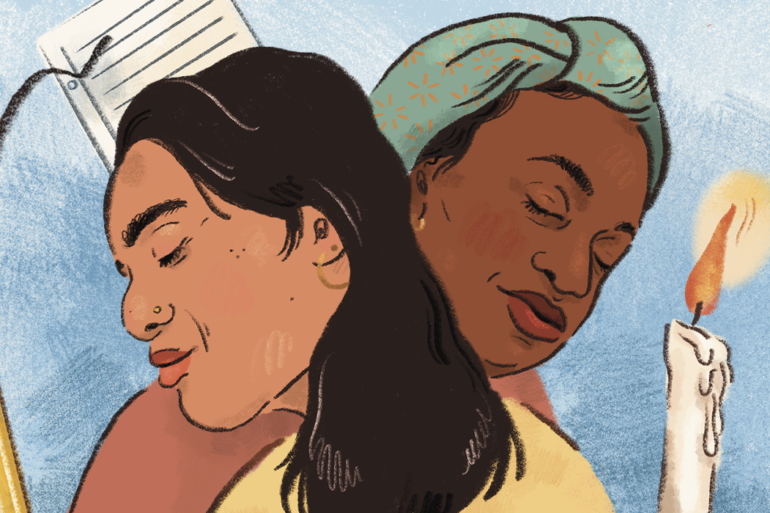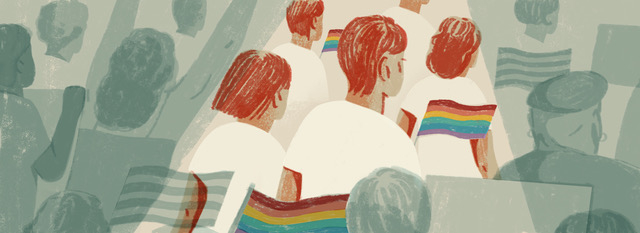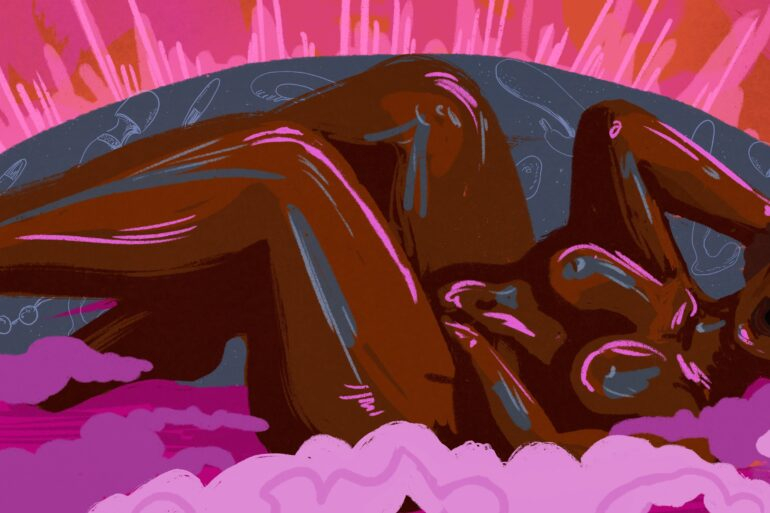When we think of prisons, we immediately think of the physical conditions: the imagination conjures up images of solitary cells and grimy surroundings.
For those of us who have not been to prisons in any capacity or worked with detainees, we likely draw a distorted image from popular culture. We may consider the psychological impact of prisons on those locked up – the mental anguish and dreaded monotony of prison life.
What is often not considered is diet. After all, since prisoners are deemed dismissible by society at large, why should the food they eat factor into their existence as nameless, faceless statistics in a punitive system?
In the UK, we need to drastically alter our approach to prisons, and considering the unjust system in terms of the food served there is a solid place to start.
Food as identity
Food is not just a routine staple to survive but a cultural signifier; something which can be a bonding experience, pleasurable or even loving. Food transcends necessity. It is about more than sustenance.
The social aspect of cooking and breaking bread together are some of the fundamentals of human life, and access to decent food is not a luxury but as vital as the air that we breathe.
So, why does this change when someone becomes a prisoner? Prison inmates are people who have been deemed punishable by a systemically biased justice system. And once you’re in a British prison, the conditions leave everything to be desired, including the meals. The diet is typically simplistic: one cold meal, one hot, and most of it processed.
The problem with prison food
Prison catering, affected by austerity and other logistical barriers, means all food comes from a centralised supplier. The result is mass produced, poor-quality ingredients; food that is high in additives, sugar and fat, but low in care or quality.
Longer-lasting, synthetic food is favoured over locally-sourced or ethically-produced foods. This supply issue is bolstered by the prevailing conservative orthodoxy that prisoners are already treated too well, which is cynically used by politicians to appear tough on crime and garner the support of right-wing newspapers. The culture of how we even consider prisons is so broken that trying to change something like food preparation within these spaces is already in conflict with huge political, financial and social obstacles.
A broken food system
For Lucy Vincent, founder of the charity Food Behind Bars, an organisation which works with prisons to reform the broken food system, the basic diet and lack of choice visibly affects the health of those incarcerated.
“Poor diet can have a very physical manifestation. It comes back to lack of joy: for most people, food is a source of comfort and also freedom; to be able to cook what you want, eat what you want, eat in tune with how you feel or the seasons or the weather. When that’s all stripped away from you, it can have very extreme mental health implications. There are also other self-esteem issues around food, like not feeling good or looking great, having to eat in your cell and not being able to walk off your food.”
I spoke with Sophie Barton-Hawkins, who spent three years in various prisons, and can also attest to the detrimental impact of the poor quality of food within the system.
“The food we were served was very carb-heavy. We ate it in our cell, sat next to our toilet, then were instantly locked up to sleep for two hours after eating this calorie-dense meal. The food was unhealthy and making me fat but I had no control over it. Eating in general was not pleasurable whatsoever, and my relationship with food completely broke down.”
Lasting impacts
Since leaving prison, the impacts have still lingered for Sophie. “My relationship with food is much better now, but the physical effects from being in prison and having a shit diet will be everlasting. I didn’t eat bread for three years in prison because it was generally mouldy – now my body is intolerant of bread. When I came out of prison, I had a lot of digestive issues which means I still have to be careful. That three year period did enough damage to my body to still affect me 12 years later.”
Food and diet choice is also a huge factor in the link between violence and crime. It is well established, though seldom dwelt upon, that a well-balanced diet directly contributes to a healthier mental state.
Poor nutrition has also been linked to increasing violent or aggressive behaviour. In places of confinement where inmates often have to dine alone, and are thus deprived of the communal ritual that comes with eating, it does not make logical nor moral sense to provide them with a deliberately poor diet. It can only serve to exacerbate the inhumane conditions of the system, perpetuating a miserable cycle of high reoffending rates and limiting chances of rehabilitation.
Study after study has shown that antisocial behaviour in prisons is reduced by the addition of healthier food into diets, including many of the vitamins and minerals associated with fresher foods. If we as a society are unable to imagine a better food culture for prisoners, we are doomed to exacerbate the endless chain of convictions.
England and Wales already have the highest prison population in Europe, which is forecast to increase dramatically, in part due to increasing police numbers and harsher sentencing. Almost half of prisoners are reconvicted of another offence within a year of release. This cannot go on.
Prisons by another name
When discussing the British carceral state, this does not just concern prisons themselves. Immigration detention centres, which house refugees and immigrants before deportations as part of Britain’s hostile environment, are places with even more unthinkable conditions.
As abolitionist group SOAS Detainee Support detail, these centres are examples of “harmful, violent and racist” state detention, with the majority of detainees being working-class people of colour.
Subscribe to shado's weekly newsletter
Exclusive event news, job and creative opportunities, first access to tickets and – just in case you missed them – our picks of the week, from inside shado and out.

The conditions of these facilities, including the food, are an intricate part of the ruthless system itself, which does not even attempt to profess ‘rehabilitation’ but instead works to completely break blameless victims of a hostile state.
The blog Detained Voices heartbreakingly captures the plight of those languishing in these makeshift prisons. One detainee describes the treatment as “very, very bad,” and further that “the food is not good. Last night they just gave me bread and rice, no sauce, nothing…”
Another voice adds: “The food they give us – even animals would not like it.” All the details about the food in these facilities, amongst other grave human rights concerns, only confirm the torturous treatment of people who are victim to the UK’s racist border policy: “They feed us chips and rice everyday. We are humans, we need to eat good food.” The dehumanisation of these people in regards to their nutrition stems from a violent refusal to recognise them as human beings, worthy of humane treatment in any meaningful sense.
What does change look like?
So how do we move beyond the state of food provision in these facilities? One answer is of course to get rid of these facilities completely. But, until we can tear the whole system down, at a bare minimum we need a basic element of humanity starting from the food we serve. In this, creativity is key.
Prisoners get around the dullness of prison meals through the concept of ‘kettle cooking’, making or adapting their own food using just a kettle or other basic equipment. This concept has even produced Instagram accounts and blogs. Lucy sees the culture of kettle cooking as proof that “prisoners want to have control over their diets and get that pleasure and joy out of cooking.”
Sophie confirms this too: “In my final prison we had a toastie-maker grill. We would save up cheese and ham sandwiches to grill them up together on a Saturday morning with cups of tea. We did the same thing with salad boxes, saving our peppers, onions and tomatoes and then frying them up on the griddle to flavour noodles or chickpeas. We were always really industrious in getting around these rules.”
These stories reinforce how much we as humans crave choice and how many people use cooking as an outlet. We need to understand food as a tool of expression. Ask anyone and they will have their signature dish they enjoy cooking, or a favourite meal.
Food autonomy and planting initiatives
This instinct does not magically disappear once you are incarcerated. There are initiatives which are trying to correct the lack of diversity and independence given to prisoners in regards to the food they consume, such as on-site greenhouses where prisoners can learn about gardening and planting.
Food Behind Bars has been working in many prisons to set up kitchen gardens within greenhouse spaces, giving prisoners some autonomy over what fresh vegetables and herbs they can choose to grow then prepare. Allowing this activity in an otherwise rigid and controlled environment can do wonders for mental health, as well as the physical benefit of consuming fresher food.
This has even expanded to schemes that teach prisoners how to look after and manage beehives. Lucy explains that these solutions bring a holistic element to this issue – the educational aspect of teaching prisoners a useful life skill but also instilling a better understanding of nature and where food comes from. Sophie also sees these initiatives as positive, creating much-needed prospects for prisoners who can come out the other side with more confidence and better means to support themselves.
The need for mindset change as well as structural change
To fix our justice system requires a radical reshaping of what we understand prisons to function as, and what we as a society want as an outcome, if indeed we want them at all. For those who wish for all prisoners to rot in the harshest conditions possible, any semblance of humanity will not satisfy their hate. So why not improve prison life first and let the public catch up after?
We have to possess both the political will and the imagination, while there is a world with prisons, to inject care into the process, starting with the basic fundamentals of good food. For those of us who want a more sustainable and humane approach to the criminal justice system, public opinion will have to evolve on many matters. Approaching food in prisons this way can begin to shift the tides against the oppressive carceral state.
Despite the seemingly insurmountable task of fighting to give prisoners healthy and dignified culinary experiences, Lucy has noticed a small shining light in the realm of prison food reform: “Though most people wouldn’t want public money going to higher prison food budgets, and that is still where we are as a society, I have definitely noticed a bit of a shift in the past five years. And I do feel hopeful for the future. But for me at least, this is a life’s work.”
What can you do?
- Support organisations in SOAS Detainee Support’s Resources List
- Listen to Food Behind Bars’ podcast from Second Window Productions
- Read Becoming Abolitionists by Derecka Purnell
- Read Lucy Vincent’s article on ‘prison food from the inside out’ for The Face
- Read this Huck article on ‘Instagram’s prison chefs’ by Jake Missing
- Read this article about a case for climate justice through abolition for shado

The illustration is inspired by the ingenuity of ‘kettle cooking’ in prisons, which is explored in the article. I used the kettle to represent the current carceral system, and the steam emerging to show the imagined future of food in prisons and immigration detention centres. As is stated in the article, ‘ . . . until we can tear the whole system down, at a bare minimum we need a basic element of humanity starting from the food we serve. In this, creativity is key.’ Within the steam, there is home grown produce and bees to demonstrate the work done by Food Behind Bars to introduce kitchen gardens, on-site greenhouse spaces and even schemes to manage beehives. The blissful look on the person’s face portrays the benefits that good food and communal food practices can have on our mental and physical health.

